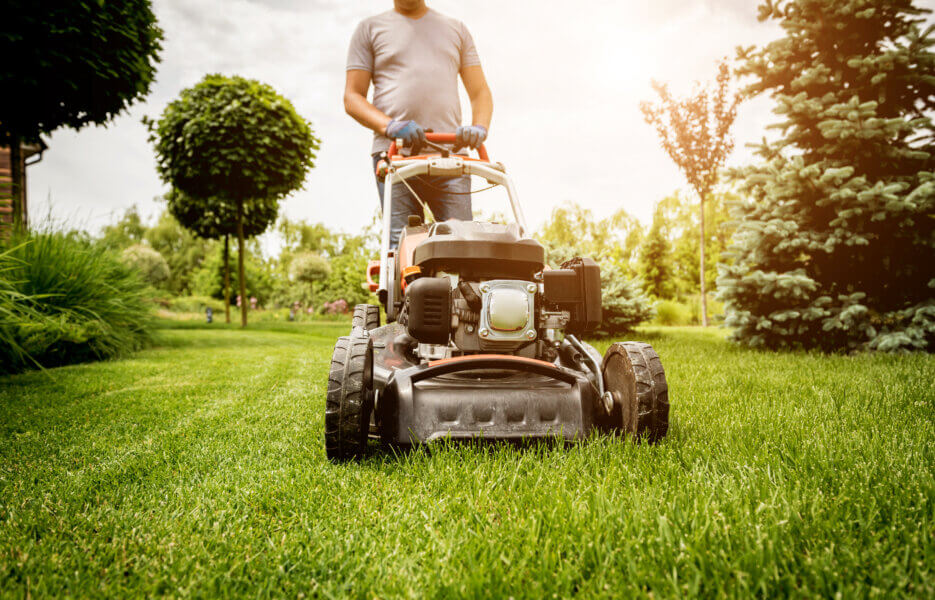
Environmentally Friendly Lawn Care
Having a lawn makes your Florida home look great, but many common lawn care practices aren’t great for the environment. If you are looking to make your lawn more eco-friendly, all it takes is a few simple tweaks to your routine. Read on for tips to help you enjoy a beautiful lawn without harming the environment.
Minimize Fertilizer and Pesticide Use
Chemical fertilizers and pesticides can be highly effective, but the residue they leave behind can get into the groundwater, potentially contaminating it. This is especially true if you use these types of products regularly or in large amounts. Instead, look for organic and natural fertilizers, and employ non-chemical methods of pest control. Fortunately, following many of the tips outlined here will keep your lawn healthy so that it can keep its defenses up against pests and common lawn diseases. If your mower has a mulch setting, make use of it, as the grass clippings can act as a natural fertilizer while also discouraging pests and weeds.
Check Your Sprinklers Regularly
With most modern irrigation systems featuring timers and rain sensors, it can be easy to take a set-it-and-forget-it approach to your sprinklers. However, ignoring your system could lead to substantial amounts of water waste. The next time your system runs, make sure that the water is actually going where you need it to and not onto your driveway or sidewalk. Sprinkler heads can shift over time along with the soil, especially if you have children or pets using your lawn, so it is important to make adjustments every once in a while. Be on the lookout for any leaks as well so that you can remedy them quickly.
Take Advantage of the Rain
It rains quite frequently here in Florida, and that is great news for your lawn. If your sprinkler system doesn’t have rain sensors built in, watch the forecast so you can turn off your system on rainy days. Aside from the potential of overwatering your lawn, running the sprinklers during rainy periods is just plain wasteful. Although each grass type has slightly different watering requirements, for most grasses you only need about an inch of water per week. It is better for your lawn to water deeply, less often than to give smaller amounts more frequently. Deep watering encourages strong root growth, which in turn, makes your lawn healthier and more resilient. To get even more benefit from the rain, add a rain bucket under the downspouts from your gutters to collect runoff, which you can then use for watering your lawn and other plants in your garden.
Skip the Weed Killers
Like chemical fertilizers and pesticides, weed killers can leave behind chemical residue. What’s more, many weed killers either aren’t very effective or kill the grass along with the weeds. Instead, take the time to weed your lawn by hand. Be sure to grip from the base so you can pull out the entire root structure. It is best to pull weeds in the spring when they are young, as they’ll be easier to remove. You’ll also get them out before they begin seeding, giving you the best chance of preventing them from spreading.
Mowing
There are a few different types of mowers. The advantages of each need to be considered for best results. Advantages of mulching mowers include reduction of yard waste (clippings are returned to the turf where they decompose quickly) and the prevention of yard waste contributing to landfills.
While many people mow their lawns weekly, you can generally get away with mowing every two weeks. This will minimize mower emissions and put less stress on your lawn. Keep your grass as close to the highest end of its healthy range as possible. Taller grass blades also do a better job of protecting against weeds, pests, and lawn diseases. Always make sure your mower blades are sharp to minimize stress on the grass.
Be sure to follow the ⅓ rule when mowing. Schedule your mowing so that you cut no more than ⅓ of the grass’s height during each mowing session. Cutting more than this will create more stress on the grass. More leaf surface left after mowing enables photosynthesis to take place. Be sure to research the best care, especially mowing heights and mower types, for your specific turf variety.
Restore Lawn Health with Fresh Sod
Rather than relying on fertilizers to bring your lawn back to health after a pest infestation or disease, you can quickly and easily repair any damage with fresh sod. Here at Duda Sod, we are proud to provide sod for sale in Orlando and throughout Florida. Get in touch with our team today to learn more about our sod delivery services. We’ll be more than happy to help you choose the perfect sod for your lawn.